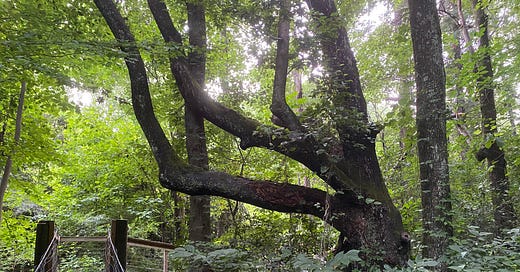I started writing the last issue about buildings, and got bored writing it. Now, if I’m bored writing, you’re definitely not going to read it! So, I’m saving us both some grief and effort and shelving that issue for a little while, until I can figure out a better way to approach the topic of building codes and standards (which aren’t really boring, but I wasn’t doing them justice).
Instead, this issue is just a list of random facts I’ve been picking up over the last few weeks, and a couple of recommendations for books and podcasts I’ve enjoyed recently.
The facts
The largest sources of transportation greenhouse gases in 2021 were light-duty trucks and passenger cars.
Cement production creates as much GHG emissions as all of those light duty vehicles combined.
Solar generated power accounted for 53% of all new electric generating capacity in 2023.
In 2023, the US generated about 4,178 billion kilowatt-hours (kWh) of electricity. Around 60% was from fossil fuels, 19% from nuclear energy, and 21% from renewable sources.
Electrification, which goes hand-in-hand with decarbonization, is steadily increasing the demand for electricity.
Once we’ve transitioned away from fossil fuels, the demand for energy will be far lower than it is today.
The Department of Energy announced $6 billion in grants to help fund 33 projects that aim to decarbonize industry—which includes steel, aluminum, cement, and chemical production, along with a few other categories. This is the largest investment made by any government ever to decarbonize industry.
The books
I read much more fiction than non-fiction, and have always enjoyed science fiction and a little bit of fantasy in particular. I like other kinds of stories, too, but am drawn to those genres often.
Lately, my science fiction reading has shifted over to climate fiction. Three recommendations:
The Overstory by Richard Powers
This story starts with a bunch of vignettes, which is not usually my favorite kind of story (I get too interested in a character and feel whiplashed when their section just ends). But these vignettes come back together. It’s a long book, and of the three recommendations here, probably my favorite. Other folks like it, too, as it is a Pulitzer Prize winner.
The Deluge, by Stephen Markley
Moving from 2013 to 2035, The Deluge offers one possible version of events, and it’s an interesting one. This book has some pretty graphic scenes and intense characters. I think about it at least once a week.
The Ministry for the Future, by Kim Stanley Robinson
I’m not quite finished with this one yet, but it’s similar to the other two in that it covers the recent past, now, and the near future. It was published in 2020 so either very easy in the pandemic or before it, and it’s interesting to see how that missing element affects (or doesn’t) the story.
The podcasts
It has taken me several years, and a growing interest in climate change mitigation, to find a group of podcasts I like. Now that I have, though, the list is long and steadily growing. I just subscribe to them all and listen any time I drive somewhere or take a walk alone.
My Climate Journey - Great interviews, which cover all kinds of different topics, including technology, policy, startups, and all kinds of other things. An interview on this podcast led me to The Ministry of the Future.
Zero - This one is produced by Bloomberg, and is hosted by reporter Akshat Rathi, who recently published a book about capitalism and climate. I appreciate his interviewing style and the wide variety of guests.
Volts - A recent discovery, I’m excited to dig into the archives of this one, which has an associated Substack. I’ve only listened to the linked episode, but have actually gone back to the transcript to revisit several bits of information, and it inspired a story pitch that has been accepted.
The Energy Transition Show - This one might be my favorite of the bunch, though that’s a tough call. I paid to subscribe (a big deal for me!) and I love listening to the episodes, which are sometimes an hour and a half long. It’s sort of academic and a little nerdy, and Chris Nelder, the host, talks to all kinds of people about the energy transition.
Upcoming
I’m hoping to write several articles about energy transmission and the grid in the near future, as that is a topic I’ve been learning a lot about. I’ve heard so many times “the grid can’t handle the energy transition” and it made me curious about why.
Perhaps you also have questions? Feel free to leave them in the comments, and I’ll try to address them in upcoming issues.






Those are your books, I'm assuming? I loved looking at your bookshelves! I checked out all your books. Caddie Woodlawn! It's so neat to see other people's books.
Thanks for these recommendations. A couple you may like are Remarkably Bright Creatures by Shelby Van Pelt and Fragment by Craig Russell, https://www.resilience.org/stories/2017-09-05/review-fragment-by-craig-russell/.
Let’s look for some facts about electricity demand due to cryptocurrency and AI. Is it possible to moderate power demand? Utilities are responsible for providing power, but is it possible to restrict demand?